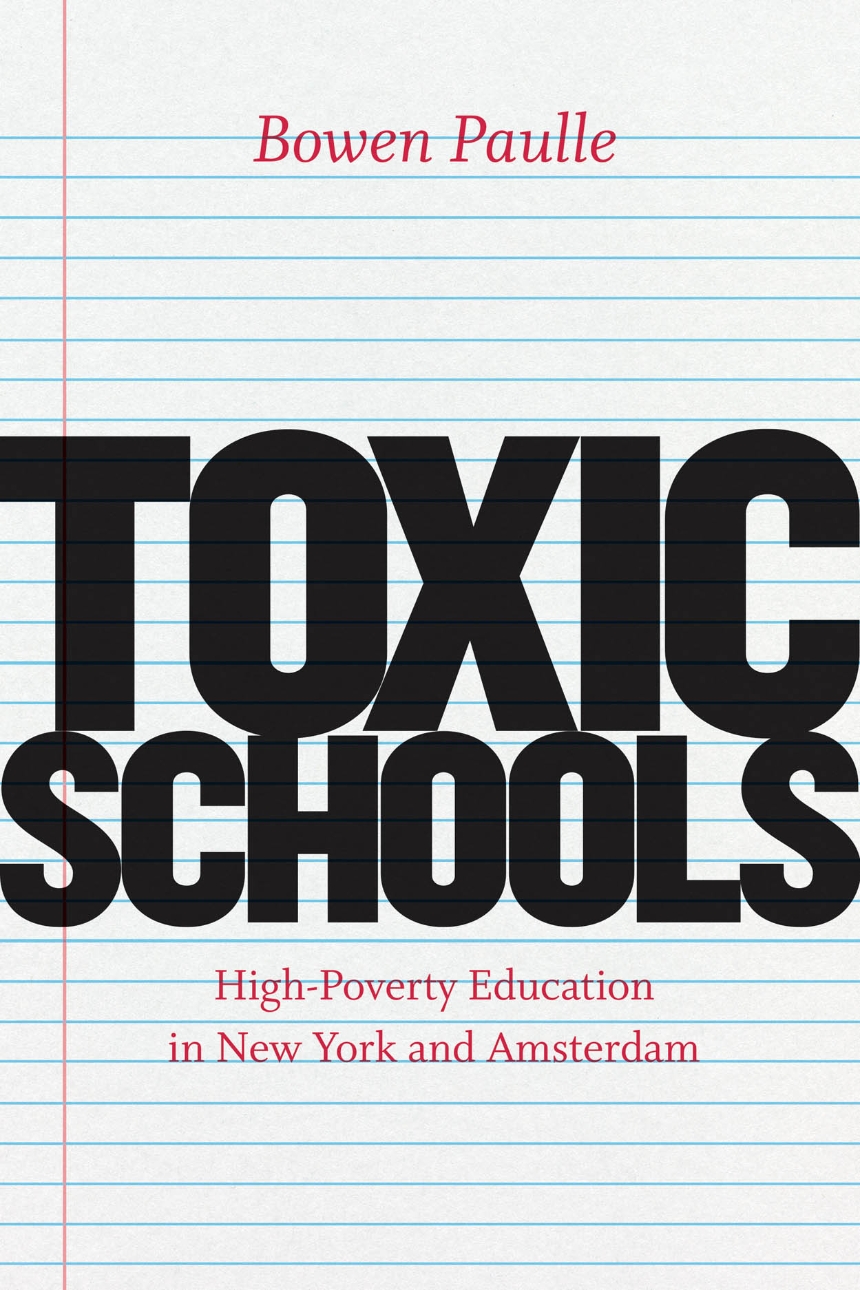Toxic Schools
High-Poverty Education in New York and Amsterdam
Violent urban schools loom large in our culture: for decades they have served as the centerpieces of political campaigns and as window dressing for brutal television shows and movies. Yet unequal access to quality schools remains the single greatest failing of our society—and one of the most hotly debated issues of our time. Of all the usual words used to describe non-selective city schools—segregated, unequal, violent—none comes close to characterizing their systemic dysfunction in high-poverty neighborhoods. The most accurate word is toxic.
When Bowen Paulle speaks of toxicity, he speaks of educational worlds dominated by intimidation and anxiety, by ambivalence, degradation, and shame. Based on six years of teaching and research in the South Bronx and in Southeast Amsterdam, Toxic Schools is the first fully participatory ethnographic study of its kind and a searing examination of daily life in two radically different settings. What these schools have in common, however, are not the predictable ideas about race and educational achievement but the tragically similar habituated stress responses of students forced to endure the experience of constant vulnerability. From both sides of the Atlantic Ocean, Paulle paints an intimate portrait of how students and teachers actually cope, in real time, with the chronic stress, peer group dynamics, and subtle power politics of urban educational spaces in the perpetual shadow of aggression.
When Bowen Paulle speaks of toxicity, he speaks of educational worlds dominated by intimidation and anxiety, by ambivalence, degradation, and shame. Based on six years of teaching and research in the South Bronx and in Southeast Amsterdam, Toxic Schools is the first fully participatory ethnographic study of its kind and a searing examination of daily life in two radically different settings. What these schools have in common, however, are not the predictable ideas about race and educational achievement but the tragically similar habituated stress responses of students forced to endure the experience of constant vulnerability. From both sides of the Atlantic Ocean, Paulle paints an intimate portrait of how students and teachers actually cope, in real time, with the chronic stress, peer group dynamics, and subtle power politics of urban educational spaces in the perpetual shadow of aggression.
328 pages | 6 x 9 | © 2013
Fieldwork Encounters and Discoveries
Education: Comparative Education
Psychology: Educational and School Psychology
Sociology: Criminology, Delinquency, Social Control, Race, Ethnic, and Minority Relations
Reviews
Table of Contents
Preface
Chapter 1: Introduction—Getting Situated
Chapter 2: Recognizing the Real, Restructuring the Game
Chapter 3: Episodic Violence, Perpetual Threats
Chapter 4: Exile and Commitment
Chapter 5: Survival of the Nurtured
Chapter 6: The Tipping of Classrooms, Teachers Left Behind
Chapter 7: Conclusion
Appendix: Research Methods and the Evolution of Ideas
Notes
Bibliography
Index
Chapter 1: Introduction—Getting Situated
Chapter 2: Recognizing the Real, Restructuring the Game
Chapter 3: Episodic Violence, Perpetual Threats
Chapter 4: Exile and Commitment
Chapter 5: Survival of the Nurtured
Chapter 6: The Tipping of Classrooms, Teachers Left Behind
Chapter 7: Conclusion
Appendix: Research Methods and the Evolution of Ideas
Notes
Bibliography
Index
